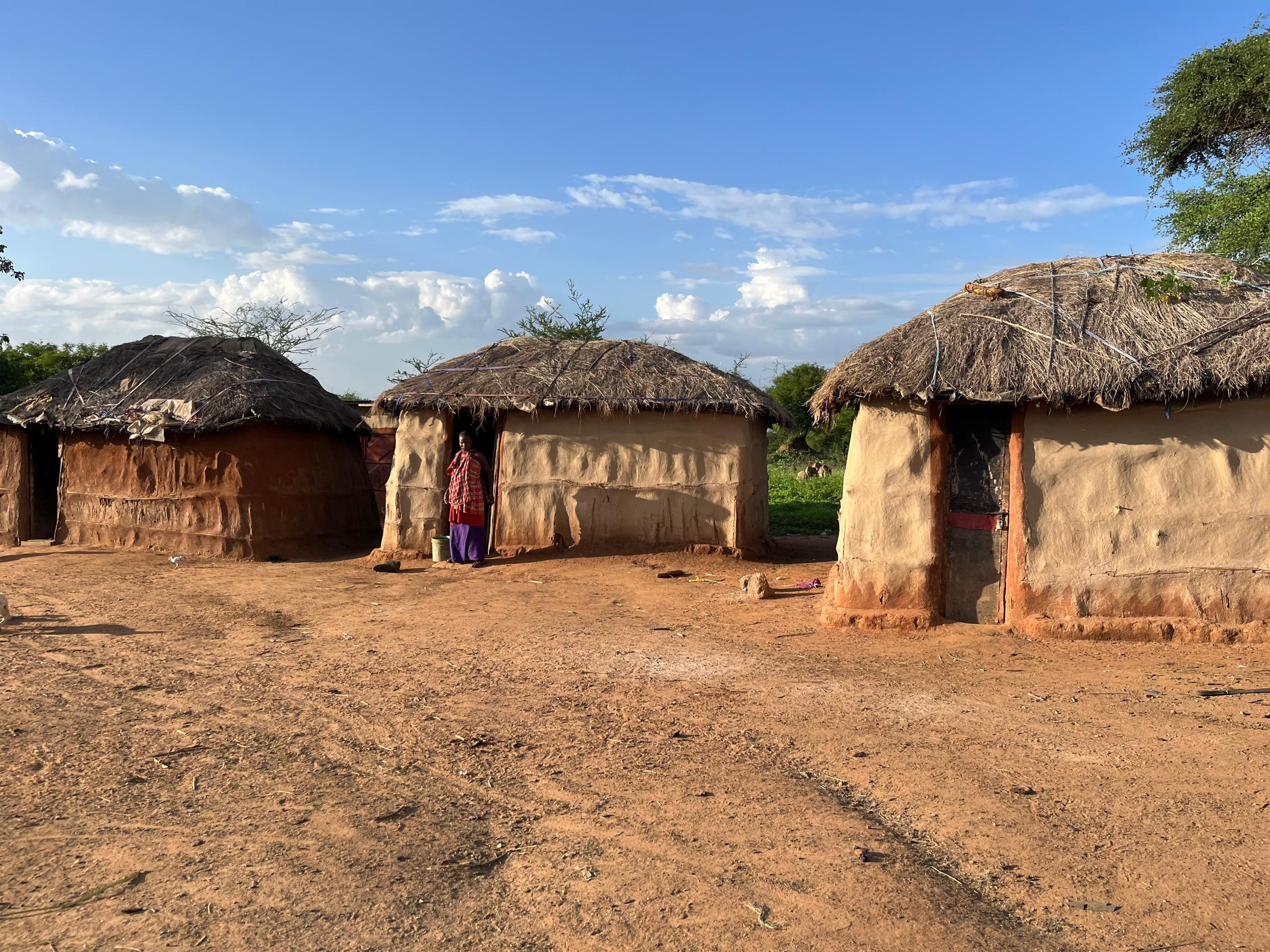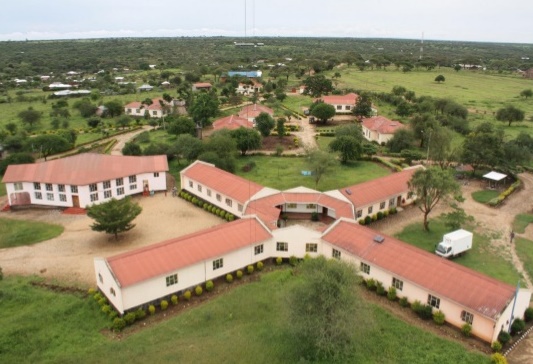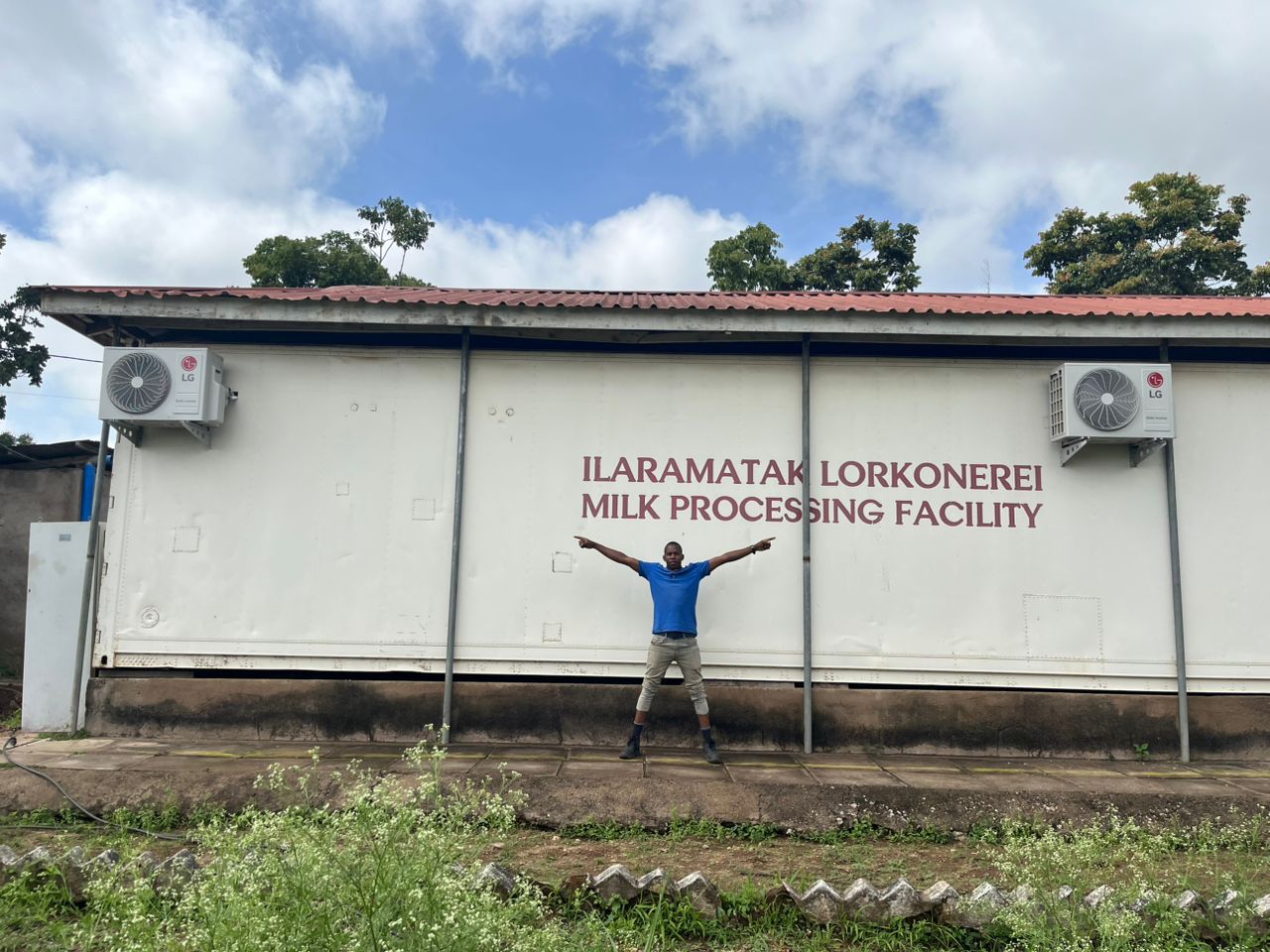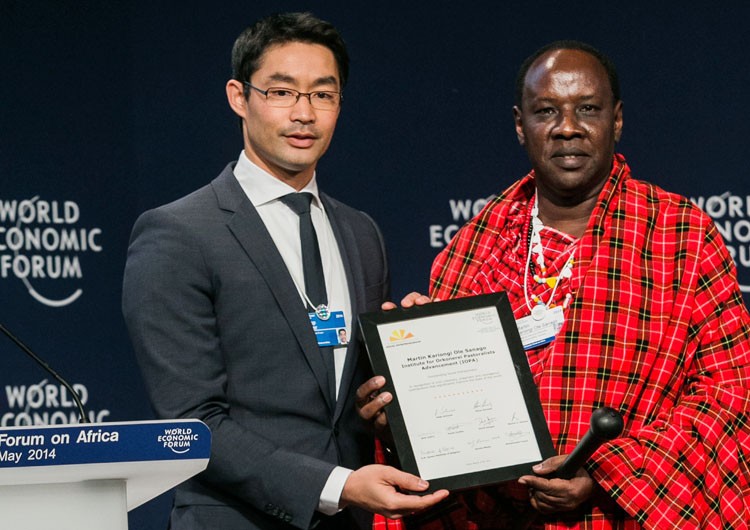The Enduring Legacy of Martin Saning'o Kariongi Ole Sanago
Martin Saning'o Kariongi Ole Sanago was a visionary Maasai leader, social entrepreneur, and passionate advocate for sustainable development, dedicating his life to uplifting his community in northern Tanzania. Born in the early 1960s in Simanjiro, a high semi-arid region south of Arusha. Martin's childhood was shaped by the challenges of pastoral nomadism where access to water and pastures was vital. Like many Maasai of his generation, Martin cannot be sure exactly when he was born. According to his father, he was born during the time Tanzania (then Tanganyika) was fighting for its independence, thus Martin believed it to be 1960. A Maasai by birth and a changemaker by calling, Martin dedicated his life to creating a future that honored his people's past while unlocking their potential.
Early Life and Education
Growing up in a Maasai community where formal education was scarce, Martin's father, a Lutheran Church member, recognized its importance. This foresight led to Martin attending a Catholic boarding school 25 km from home. Remarkably, he was one of only two Maasai boys out of 600 at the school to pursue secondary and eventually university education. Between 1988 and 1990, Martin furthered his education in Community Development and Eye Health in Dublin and at University College London. He chose eye health to directly address the high prevalence of eye disease among the Maasai, a consequence of the extreme dryness, the scrub, and thorny trees in the regions they live in.

It was during his educational pursuits that the seeds of his future initiatives began to sprout. He observed firsthand the disparities and challenges faced by his community: limited access to resources, economic vulnerabilities, and the delicate balance between preserving cultural heritage and adapting to a changing world. These observations, coupled with his growing understanding of development principles, ignited a passion to create sustainable solutions. While in Ireland, his engagement with the Travellers community resonated deeply with his own nomadic roots. What he learned there became central to a lifelong mission: to ensure that the Maasai, too often sidelined by development agendas, could speak, lead, and thrive on their own terms.
Advocacy, Activism, and Innovation
Upon returning to Tanzania, Martin became a Community Eye Health Officer with the Lutheran Church in Simanjiro. However, he found the church too conservative culturally and socially to support his views which he believed were necessary for the advancement of the Maasai community.
Driven by his deep commitment to his community, him and 20 other progressive-minded local Maasai established IOPA (Institute for Orkonerei Pastoralists Advancement), in the early 1990s. IOPA's mission was clear: empower the Maasai through education, land rights advocacy, sustainable development initiatives and improved community health. From his three weeks with the Travellers community in Cork, Ireland, Martin had learned about the power of community radio for linking and educating remote and nomadic communities. This insight led him create of Orkonerei FM Radio, Tanzania's first community radio station and broadcasting in Maa (the Maasai language). With support from the Swedish International Development Cooperation Agency (SIDA), the station was completed and began broadcasting in 2002. It quickly became a vital tool delivering health education, land rights information, and cultural pride directly into homes of rural listeners.
Martin quickly realized that the radio station's success and reach, depended on something more fundamental: electricity. For broadcasts to truly empower, people needed radios, and those radios needed power. Leveraging a connection made with the Irish Ambassador to Tanzania during his studies in Europe, Martin gained introductions to regional environmental organizations, including UNEP in Nairobi. This opened two crucial doors: it allowed him to advocate internationally for indigenous people's land rights and environmental stewardship, highlighting the community radio's role in this, and led to an invitation to a pioneering regional workshop on solar energy systems in 1992. Inspired, he established the Orkonerei Solar Energy Project in the mid-90s. This initiative sought to introduce solar appliances, particularly lanterns and radios, to the Maasai in Simanjiro. Despite its visionary concept, the initial astronomical prices of these solar products—around $250 at the time—hindered widespread adoption, preventing the project from fully realizing IOPA's and its funders' ambitious hopes.
Empowering Women and Fostering Economic Growth
Martin's vision was not simply about modernization; it was about empowerment. He understood that true progress stemmed from collaborative work with his community, respecting their traditions, and building upon their existing strengths. This philosophy became the cornerstone of his approach to community empowerment and social entrepreneurship.
A key focus was empowering women, IOPA established women's centers and community libraries that provided education and support for women and children. These centers offered a haven for women and their children who had experienced violence, allowing them to share their stories. Where appropriate, IOPA facilitated managed dialogues with their husbands. Through this program, IOPA actively worked to prevent FGM and child marriage, encouraging girl's education, and elevating women's status within the Maasai society. They often drew upon Maasai cultural wisdom, recalling Maasai sayings such as “a household without a woman is not warm and friendly” to support their efforts. Following the success of the Terrat women's centers, IOPA established five more centers across the Maasai region. These centers also housed community libraries, to support education of the Maasai. For children, IOPA had by then helped establish more than 50 pre-primary and 20 primary schools across the region.

Martin's work and international advocacy gained recognition, and one of his proudest achievements was to be elected an Ashoka Fellow in 2003. This fellowship also brought him to the attention of Dini de Rijcke, a Dutch private philanthropist, whose foundation, Stichting Het Groene Woudt (SHGW), began collaborating with four original Ashoka fellows, including Martin and IOPA. Working with Ashoka and SHGW finally enabled IOPA to achieve many of its longstanding objectives. They supported the acquisition of reliable generators for the radio station, and critically helped IOPA embark on vital water supply projects in the dry Maasai lands. With the water table often 150m below ground, deep boreholes and powerful pumps were essential. Martin consistently recognized the need for energy to catalyze other initiatives and services.
Recognizing the economic potential of Maasai women, Martin, with SHGW's support, established five dairy processing plants. These plants enabled women to produce and sell dairy products like cheese, yogurt, butter, and ghee. He understood that while traditional Maasai society was strong in many ways, it often marginalized women. Through these plants, powered by generators and capable of processing up to 2000 liters of milk daily, Maasai women could earn an income by selling milk to the plants, reducing their dependence on men. This initiative not only provided economic empowerment but also fostered financial independence, allowing women to contribute more fully to the well-being of their families and communities. The Maasai women dairy project was a business solution to economically empower Maasai women who were facing gender-based violence and marginalization.

Furthermore, as the electrical power from the radio station and dairy generators proved highly popular, IOPA expanded, adding more generators which were run on biodiesel (Jatropha oil) to build one of the country's first mini grids. This provided power to over 1000 customers in Terrat village. Martin understood that for true sustainability, all regional activities and initiatives needed to strive for self-sufficiency. Thus, IOPA diligently worked to create viable microenterprises and businesses, ensuring that the services and activities established could continue even after funder collaborations ended. These initiatives were never top-down projects; they were rooted in the community, driven by local needs, and designed for long-term sustainability.
Legacy and Enduring Impact
Martin's innovative approach to community development garnered significant international recognition. In addition to being named an Ashoka Fellow in 2003, he was among the recipients of the Social Entrepreneur of the Year Award from the Schwab Foundation and the World Economic Forum Africa, also named as one of the Global Innovators at the Expo 2020 Dubai.

In 2019, IOPA was restructured as Orkonerei Maasai Social Initiatives (OMASI). By the end of 2020, many of Martin's long-term goals were realized, including the electrification of his home village, Terrat, and the expansion of OMASI's vital programs.
Martin Saning'o Kariongi Ole Sanago passed away on March 1, 2021, in Arusha due to complications from COVID-19. His profound legacy endures through the institutions he founded and the lasting positive impact on the Maasai community. His life stands as a powerful example of how one individual, deeply rooted in their culture and empowered by education, can bridge tradition and innovation to create a more just and sustainable future for their people.
This story is adapted from an original article by Dr. Bernie Jones